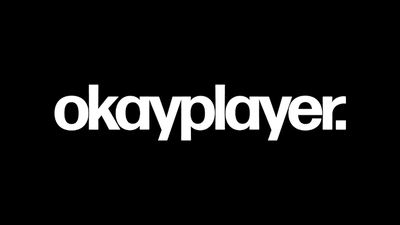When Being Woke Goes Wrong: Pepsi, Black Lives Matter & Conscious Branding
In an attempt to cash in on the trend of progressive branding, Pepsi released an advertisement this past Tuesday (that the company has since taken down) that was anything but.
The nearly three-minute commercial boils down to a protest in which Kendall Jenner, in the middle of a photoshoot, is encouraged to participate in said protest by a cellist. She takes off a blond wig (which is promptly thrown to a black woman), wipes her lipstick off and walks into the crowd, grabbing a can of Pepsi along the way.
She ultimately hands the can to a police officer whose intimidating demeanor is immediately diffused, as he smiles at another cop. Some guy does a dab in solidarity; protestors cheer; and then there's Kendall, the face of Pepsi's "Live bolder, live louder, live for now" campaign.
In the commodified "Stay Woke" age conscious branding is desired by consumers, especially those that are against Donald Trump and any company that supports him. Outrage and protests have led to Uber CEO Travis Kalanick resigning from Trump's advisory council, and apps exist to inform users of the businesses Trump has as well as those that are affiliated with him.
As a company, it is easy to claim progressivism, but progressivism is in and of itself complex. The issues that people are protesting and risking their lives for in this country stem from systemic issues that have been part of America since its creation. So, as a company, if you are going to co-opt a progressive agenda you should be mindful of the ways in which it is executed.
On the surface, Pepsi is attempting to be progressive. But in reality, this advertisement is an example of when being woke goes wrong.
A lot of criticism directed at the commercial points out the scene where Kendall hands the police officer a Pepsi, which is inspired by the Black Lives Matter photo where Ieshia Evans calmly stands in a sundress front of three officers in riot gear offering her hands peacefully to who proceed to arrest her.
The differences speak volumes: a blissful and smiling white woman, and a calm and emotionless black woman; cops in baseball caps and short-sleeved shirts, and cops in riot gear; one woman does not get arrested, the other does.
To not think about Evans in the context of this commercial is difficult to do. The photo was and still is symbolic of the police brutality against black people throughout the country, so much so that it is considered iconic.
Of course, the commercial also brings to mind the iconic 1967 "Flower Power" picture, in which photographer Bernie Boston captured a Vietnam War protester putting flowers into the barrels of soldiers' rifles.
Even if Pepsi were trying to replicate this image and not that of Evans, the commercial is still offensive and tasteless. To simplify such movements against violence both abroad and not, and bringing your brand into a context that is complex and, most importantly, positioning your brand as a solution to such a complex problem, is tone-deaf.
During this year's Super Bowl a number of commercials with political undertones were shown, with many addressing Trump's immigration ban. One, from Coca-Cola, was originally shown in 2014 and features a display of different landscapes throughout America, as well as people of all ages and ethnicities, soundtracked to "America The Beautiful" being sung in many languages. The other, from Airbnb, features people accompanied with the tagline "We accept," which follows captions such as "Where you're from," "Who you love" and "Who you worship."
Both of these were well-executed because they display these brands as supporters, and not a solution to these problems. Yes, some of the corporations mentioned have issues of their own and yes, they're still selling their product but they're treading the line of progressivism and advertisement because they are aware (or seem to be) that these issues are not to be taken lightly. For the former, there are scenes where nothing related to Coca-Cola is shown; in the latter, Airbnb does not present that it is behind the advertisement until the very end.
Pepsi's commercial is cringeworthy because from beginning to end they are overtly obvious in trying to sell their product. From the blue protest signs to Pepsi cans showing up right next to people integral to the narrative the commercial is trying to tell, you know this is from Pepsi.
But the real problem is when Pepsi presents itself as a solution and not an ally. The moment Kendall hands the cop a Pepsi, the commercial leans too heavily on the advertisement and not the commentary, ignoring the nuance that should be used in handling something like this.
What viewers are left with is something that claims to be aware, when it really is not. The Pepsi commercial is embodied at the 51-second mark, in which two women who do not seem to be a part of the protest, make different hand gestures as people march on.
Hopefully, Pepsi serves as an example for other companies trying to brand themselves as conscious and progressive — it is easier said than done.


